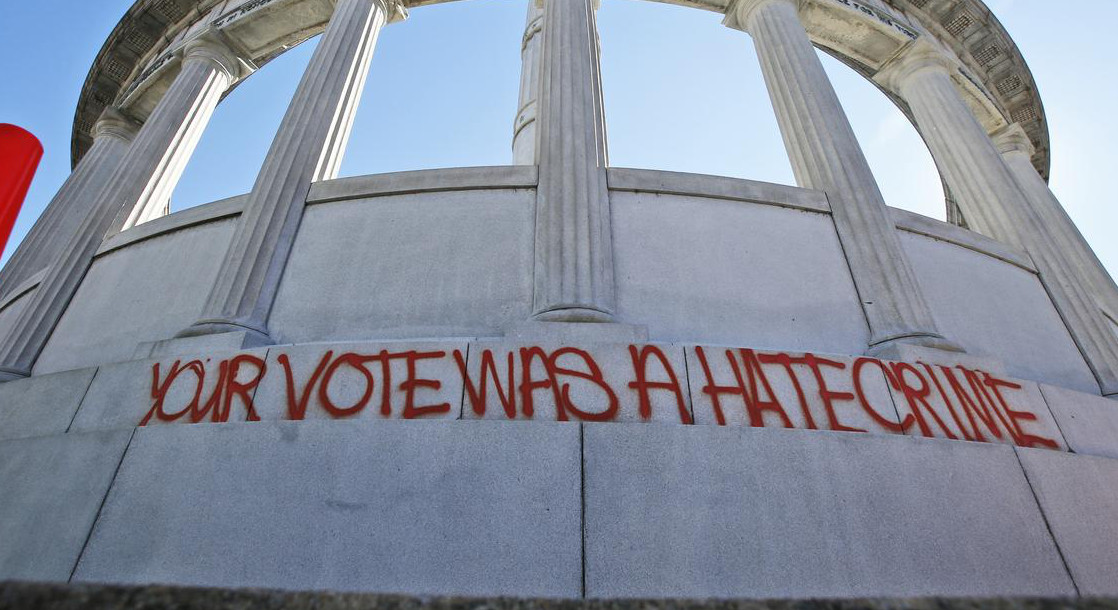In the ten days following the 2016 election, the Southern Poverty Law Center recorded almost 900 reports of hate crime incidents across the country. This average of 90 hate crimes per day is significantly higher than the average of 15 per day reported by the FBI from 2010 to 2015. But because the data came from two different sources, it is hard to tell whether the election caused hate crimes to spike, if the FBI has been under-reporting hate crimes, or if there were simply more hate crimes in 2016 than in the previous five years.
This discrepancy piqued the interest of the data researchers at FiveThirtyEight, who decided to take a deeper look at the numbers. Researchers collected data on the education level, racial diversity, and economic health for each state and compared it with SPLC and FBI hate crime reports. The most significant finding was that states with more income inequality were more likely to have a higher number of hate crime incidents. This connection was true both before and after the election.
It is already known that income inequality is a determinant of neighborhood violence and of violence in general. “It’s typically not your objective situation that makes you angry and resentful, but rather your situation relative to others you see around you,” said Mark Potok, editor-in-chief of the Intelligence Report, the SPLC’s journal. “So, where income inequality is very high, so is anger and resentment against those ‘other’ people who you fear are doing better than you.”
The research does have its limitations, and only shows a link between income inequality and hate crimes, without proving definite causality. The findings are strong enough, however, to suggest that further research needs to be undertaken to fully understand the phenomenon.











